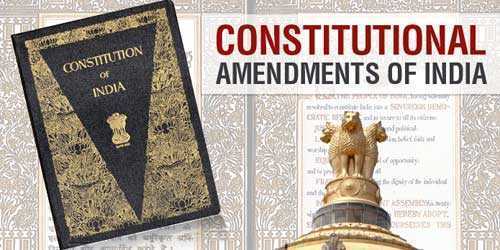Actually, the reservation banter about has by and by brought into center the imbalances amongst people in constituent governmental issues. Indeed, even in fifty years, the Indian State has not possessed the capacity to satisfy the guarantee of balance for ladies, in spite of Constitutional certifications and authoritative intercessions. The falling sex proportion, developing violations against ladies, inappropriate behavior looked by ladies in each circle of life, absence of access to gainful assets and bad form to ladies for the sake of individual laws, are demonstrative of society's viewpoint towards ladies.

Ladies have customarily been praised for their conceptive part alone, and expanding commodification and market economy is driving ladies to be shoppers alone, while absolutely refuting their commitment as makers. The move to save 33% seats in Parliament for ladies subsequently, should be examined in this more extensive setting.
It was the National Perspective Plan on Women which first talked about reservations from Panchayats to Parliament. In 1989, the assembled resistance vanquished the 73rd Amendment which ensured 33% booking for ladies at the Panchayati Raj level. It was at last gone in 1991, and from that point forward around 1 million ladies have been chosen to nearby bodies. Despite the fact that the United Front government had touted booking for ladies issue in its decision pronouncement, when it came to putting to vote the 81st Constitution Amendment Bill (accommodating 33% reservation for ladies in Parliament and State Assemblies), the legislature experienced some sudden nerves. This was in spite of the way that the Report of the 31 part Parliamentary Panel favored quick section of the Bill, and there was across the board campaigning and support for it.
Basic protests to booking for ladies relate primarily to absence of training, the 'reality' that men in their families will at last use the power, and that ladies are not 'utilized' to legislative issues, and so on. One of the certainties disregarded in such denigration of ladies' potential is that ladies have been detached inside the limits of their home, the whole duty of family unit obligations and youngster raising is pushed onto them, and 'en have guaranteed that the domain of the 'outside' world is theirs alone. The issue of booking for in reverse stations has served to additionally cloud the issue, however what has turned out to be progressively clear is that men in control feel to a great degree undermined at the unimportant thought of sharing that power, particularly with ladies.
There is almost certainly that ladies' portrayal in the formal political circle is appallingly low. The quantity of ladies in the Indian Parliament has tumbled from 39 (7%) in 1991 to 36 (6%) in 1996. In spite of the fact that this rate is higher than that of purported 'created' nations like France (6%) and not exceptionally a long ways behind UK (9%) and USA (11%), it is significantly low for a nation where ladies took an interest in thousands in the opportunity development, and have dependably been at the front line in exchange associations, worker developments, biological developments and other sorted out battles.
"Cheers"